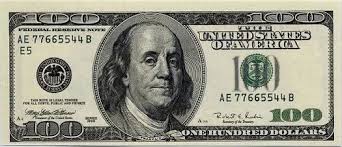Business Advice from Benjamin Franklin

To Americans, Benjamin Franklin needs little introduction. Among other things, Franklin was a founding father of the United States, diplomat, and inventor. Aside from scholars, few people give Franklin the entrepreneurial credit he deserves. He ran several businesses and was respected throughout the colonies for his success.
A Founding Father’s Guide to Financial and Business Success
By 22 years old, Franklin had successfully started his own printing house and began publishing The Philadelphia Gazette, one of the colonies’ most prominent newspapers. Just a few years later, he attained widespread fame and wealth with the publication of a simple guidebook to help people and farmers predict the weather, tides, and best planting dates. Poor Richard’s Almanack became a sensation across the colonies and included additional bits of wisdom that Franklin gleaned from his then 27 years of life. It’s impossible to escape the lessons offered in his almanac and many Americans still know them today.
“A penny saved is a penny earned.”
Perhaps Franklin’s most widely known saying, this simple advice for managing personal finance was true in the 1700s as it is today. With so much of people’s income dedicated to bills, any money you save for the future is money earned. To be fair, the widely known phrase, “A penny saved is a penny earned” is not actually found in Poor Richard’s Almanack. The originally quote read, “A penny saved is twopence clear.” In a later edition, the quote finally found wording comparable to modern english.
Create a Code and Live By It
In his early 20s, Ben Franklin decided he needed a code of conduct by which to live and develop himself. He quickly wrote down a list of 13 virtues that he believed were necessary to become a success while living a virtuous life. The parts about virtue and religion are obviously subjective and best left to everyone’s personal choices. However, the advice on frugality, conviction (resolution), and time management are necessary pieces of advice for any aspiring entrepreneur.
-
“TEMPERANCE. Eat not to dullness; drink not to elevation.”
-
“SILENCE. Speak not but what may benefit others or yourself; avoid trifling conversation.”
-
“ORDER. Let all your things have their places; let each part of your business have its time.”
-
“RESOLUTION. Resolve to perform what you ought; perform without fail what you resolve.”
-
“FRUGALITY. Make no expense but to do good to others or yourself; i.e., waste nothing.”
-
“INDUSTRY. Lose no time; be always employ’d in something useful; cut off all unnecessary actions.”
-
“SINCERITY. Use no hurtful deceit; think innocently and justly, and, if you speak, speak accordingly.”
-
“JUSTICE. Wrong none by doing injuries, or omitting the benefits that are your duty.”
-
“MODERATION. Avoid extremes; forbear resenting injuries so much as you think they deserve.”
-
“CLEANLINESS. Tolerate no uncleanliness in body, cloaths, or habitation.”
-
“TRANQUILLITY. Be not disturbed at trifles, or at accidents common or unavoidable.”
-
“CHASTITY. Rarely use venery but for health or offspring, never to dullness, weakness, or the injury of your own or another’s peace or reputation.”
-
“HUMILITY. Imitate Jesus and Socrates.”

back to blog

To Americans, Benjamin Franklin needs little introduction. Among other things, Franklin was a founding father of the United States, diplomat, and inventor. Aside from scholars, few people give Franklin the entrepreneurial credit he deserves. He ran several businesses and was respected throughout the colonies for his success.
A Founding Father’s Guide to Financial and Business Success
By 22 years old, Franklin had successfully started his own printing house and began publishing The Philadelphia Gazette, one of the colonies’ most prominent newspapers. Just a few years later, he attained widespread fame and wealth with the publication of a simple guidebook to help people and farmers predict the weather, tides, and best planting dates. Poor Richard’s Almanack became a sensation across the colonies and included additional bits of wisdom that Franklin gleaned from his then 27 years of life. It’s impossible to escape the lessons offered in his almanac and many Americans still know them today.
“A penny saved is a penny earned.”
Perhaps Franklin’s most widely known saying, this simple advice for managing personal finance was true in the 1700s as it is today. With so much of people’s income dedicated to bills, any money you save for the future is money earned. To be fair, the widely known phrase, “A penny saved is a penny earned” is not actually found in Poor Richard’s Almanack. The originally quote read, “A penny saved is twopence clear.” In a later edition, the quote finally found wording comparable to modern english.
Create a Code and Live By It
In his early 20s, Ben Franklin decided he needed a code of conduct by which to live and develop himself. He quickly wrote down a list of 13 virtues that he believed were necessary to become a success while living a virtuous life. The parts about virtue and religion are obviously subjective and best left to everyone’s personal choices. However, the advice on frugality, conviction (resolution), and time management are necessary pieces of advice for any aspiring entrepreneur.
-
“TEMPERANCE. Eat not to dullness; drink not to elevation.”
-
“SILENCE. Speak not but what may benefit others or yourself; avoid trifling conversation.”
-
“ORDER. Let all your things have their places; let each part of your business have its time.”
-
“RESOLUTION. Resolve to perform what you ought; perform without fail what you resolve.”
-
“FRUGALITY. Make no expense but to do good to others or yourself; i.e., waste nothing.”
-
“INDUSTRY. Lose no time; be always employ’d in something useful; cut off all unnecessary actions.”
-
“SINCERITY. Use no hurtful deceit; think innocently and justly, and, if you speak, speak accordingly.”
-
“JUSTICE. Wrong none by doing injuries, or omitting the benefits that are your duty.”
-
“MODERATION. Avoid extremes; forbear resenting injuries so much as you think they deserve.”
-
“CLEANLINESS. Tolerate no uncleanliness in body, cloaths, or habitation.”
-
“TRANQUILLITY. Be not disturbed at trifles, or at accidents common or unavoidable.”
-
“CHASTITY. Rarely use venery but for health or offspring, never to dullness, weakness, or the injury of your own or another’s peace or reputation.”
-
“HUMILITY. Imitate Jesus and Socrates.”
@LemonadeDayNational






